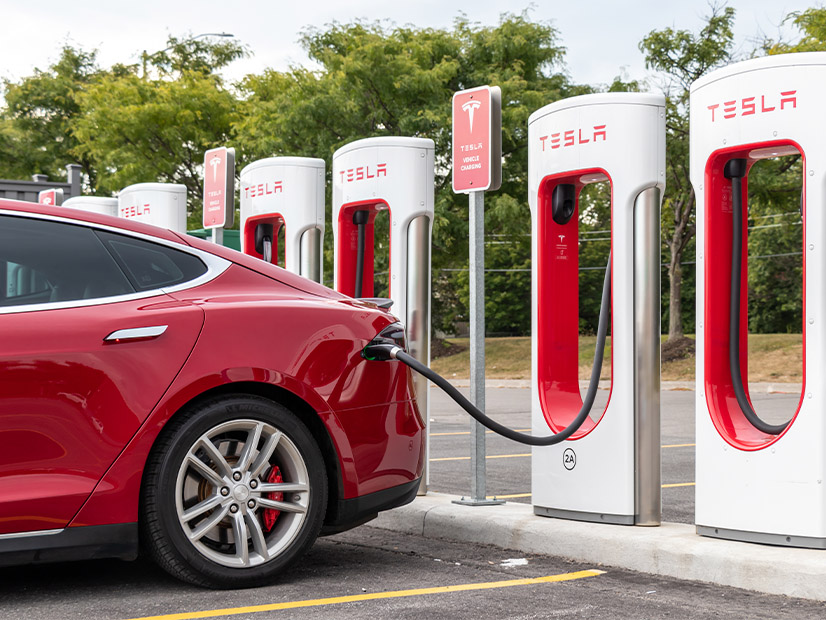
MOR-EV is at a crossroads.
Funding for the Massachusetts electric vehicle rebate program expires at the end of June, and while it’s likely to be renewed in some form, both the Baker administration and the Massachusetts legislature are eyeing policy tweaks to factors from the size of the rebate to the price cap on vehicles.
The state’s Department of Energy Resources commissioned a report on the program, published in March, which lays out several recommendations for targeting consumers in a no-longer-nascent industry.
DOER Commissioner Patrick Woodcock told RTO Insider that the Baker administration will pursue many of those tweaks as the state government prepares for a gubernatorial transition.
“We would like to begin to target the types of vehicles that provide the most emission benefits … and put these programs in a position to have some fiscal stability with them for our successors,” Woodcock said.
Another goal his department is eyeing is to improve equity in the program and reduce the number of “free riders” taking part, who would be purchasing EVs anyway, regardless of the rebate.
The program has shifted several times in its eight years of existence, but in its current form it offers a $2,500 rebate for battery or fuel cell EVs with a purchase price below $50,000, and a $1,500 rebate for plug-in hybrid EVs.
The price cap of $50,000 is one of the main targets for Woodcock and the Baker administration, who are recommending lowering it to $47,500.
“Reducing the vehicle purchase price cap is highly likely to improve financial sustainability, cost-effectiveness and equity,” the report said. It would reduce the percentage of EV sales eligible for the credit, reduce “free ridership” and ensure that more rebates are available for lower-cost vehicles.
Limiting rebates for plug-in hybrids (only allowing them when there are no EV alternatives in the same price point) is another central plank of the administration’s plans.
“We do think we’ve gotten to a saturation level that we really should be encouraging battery EV purchases,” Woodcock said.
The administration is also looking at moving the rebates to point-of-sale, expanding the rebate to used EVs and adding separate incentives for low- and moderate-income (LMI) consumers.
In the Legislature
Changes to the program might not all be up to the administration or even the next governor.
The two chambers of the Massachusetts legislature are working on an energy bill that could include new EV provisions. (See Mass. Legislators Try to Hash out Next Climate Bill). The House version is narrowly focused on offshore wind, but the Senate has proposed changes and an influx of money for EVs.
The Senate proposal takes a different tack from what DOER is putting forward. It would create a $100 million EV Adoption Incentive Trust Fund to keep the money flowing past June.
But it would maintain the $50,000 price cap, while increasing the rebate amount to as much as $5,000 and adding point-of-sale rebates and an extra value to the rebate for LMI consumers.
The Green Energy Consumers Alliance, which has been tracking possible changes to MOR-EV, notes that the funding itself would support less than 30,000 EVs.
“Let’s get the new MOR-EV program up and running with the understanding that we will need other policies beyond consumer rebates to reach the larger goal,” the advocacy group wrote in a May 9 blog post.
Short-term Solvency?
Unaligned priorities mean that DOER may have to dig into its reserves to keep the program running this summer.
MOR-EV funding expires at the end of June, but the legislature has until the end of July to agree on a compromise for the negotiation.
Woodcock said that a funding shortage for the program in 2019 forced the department to balance its resources in a way that prepares it for gaps.
“We have full confidence that we’ll be able to continue to administer this program for a number of months even if there isn’t an extension of the budgetary language,” he said. “We certainly hope there’s clarity as soon as possible with the program, but we don’t see that there would be a significant disruption in July or August.”
Woodcock wants to ensure stability for the program heading into the gubernatorial transition.
“Stability is one cornerstone of good public policy,” he said. “From my vantage point, from the discussions in the Massachusetts legislature … it’s just a question of how long, by what duration, and what funding levels the program will be in.”


